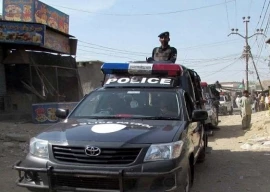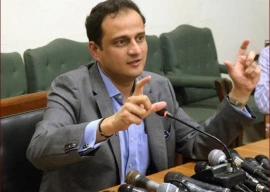
Environment minister Sikandar Mandhro shared this at the 'Provincial Roundtable' at Mehran hotel on Tuesday afternoon. The event organised by non-governmental organisation Strengthening Participatory Organisation (SPO) and United States Agency for International Development (Usaid) called on members of civil society and Sindh government representatives to discuss the challenges and development with regards to the Sindh Information Act 2006. Mandhro said the new bill has been drafted after reviewing the laws of Khyber-Pakhtunkhwa (K-P) and Punjab and by taking into account the charter of demands presented by the civil society.

On the question of the lack of availability of information to common people, he agreed that it's both a mistake and a weakness and more to do with the society's general approach towards it. "It's as much the society's responsibility as it is of the secretariats and officers," he said. "We spend billions on education and health yet these services do not reach the common man. Where is the problem exactly?"
Right to information: K-P’s law judged ahead of other provinces
From here, he shared an account of a personal pilot project he took for 14 primary schools of Badin district. "After 15 days, I learnt that there are 56 extra teachers than needed in these 15 schools who were reported to the education department," he said, adding that all 52 of them were reinstated mainly due to requests from top officials. Coming back to the right to information bill, he said that unless the society takes ownership of issues such as education and right to information, they will not be resolved.
Civil society member Younis Khashkhely talked about the issues with respect to lack of information in the districts of Badin, Thatta and Malir. He said people have often lodged complaints about disposal of hospital waste. "This is injurious to health and leading to the spread of diseases," he said. "In Memon Goth Hospital of Malir district, the medical equipment is there but there is a severe shortage of doctors. No response has been received even after multiple applications were sent to the authorities."
Khashkhely recommended that an information centre be formed in every district that can help citizens with such concerns. He further suggested the need of computerising all records and documents so that collection of information is easy and can facilitate those who are seeking it. "Government representatives should also be trained as their negative attitudes act as deterrent to people who come for complaints," he said.
Naseer Jamali from the Provincial Ombudsmen Office said that data is available and the officials are aware that information other than that is classified should be provided to those seeking it. "If they don't give it, then there is a reason," he said. "Public has to have access to it. Everyone knows it."
Published in The Express Tribune, February 17th, 2016.


1725443747-0/Untitled-design-(5)1725443747-0-165x106.webp)














COMMENTS
Comments are moderated and generally will be posted if they are on-topic and not abusive.
For more information, please see our Comments FAQ